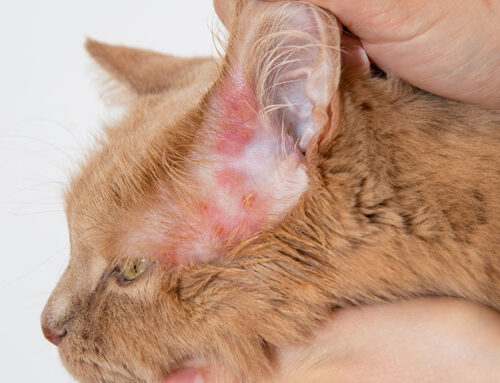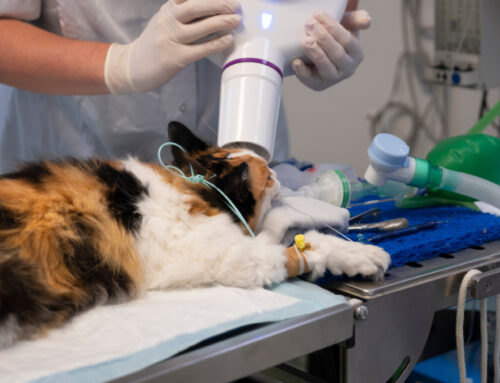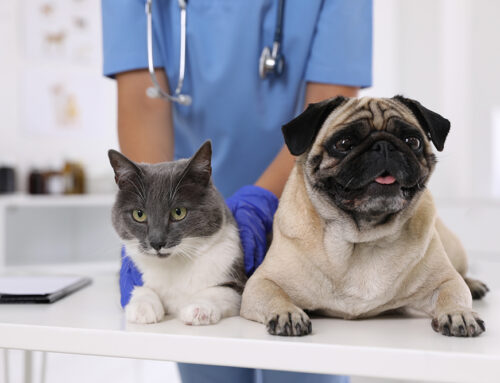You adore your pet and want to ensure they get the medical attention they deserve, but how can you know when there is an actual emergency and when you can take a breath and monitor your pet? Our team at Star of Texas Veterinary Hospital is here to address any concerns you have about your pet, but we would also like to help you determine when you should bring your pet in immediately for care.
#1: Emergency: Your pet is unconscious (Drama police: Your pet is asleep)
Many things can cause your pet to lose consciousness. For instance, if your pet is bleeding internally from an undiagnosed tumor, they can suddenly become unresponsive. An insect sting can trigger an allergic reaction, causing your pet to collapse. A heart defect may cause a sudden, extreme drop in your pet’s blood pressure, resulting in unconsciousness. Ingesting a toxin may cause your pet to collapse. On a hot day, heat exhaustion can cause your pet to become unconscious. If your pet suddenly loses consciousness, you should consider it a medical emergency and seek help immediately.
#2: Emergency: Your pet is bleeding excessively (Drama police: Your pet has a scratch)
Blood is never easy to see, especially when your pet is the one bleeding. If that happens, apply firm pressure with sterile gauze or a clean cloth. If the bleeding has not stopped after five minutes, your pet is in danger. If their wound is on one of their legs, you can make a tourniquet using a belt or bandage material to try to stop the bleeding and then take them to the hospital as quickly as possible.
#3: Emergency: Your pet is having difficulty breathing (Drama police: Your pet drooled on the couch)
A pet who is having difficulty breathing will exhibit such signs as open mouth breathing, exaggerated abdominal movement during inhalation and exhalation, pale or blue gums, and, possibly, audible wheezing noises. Your pet could be having difficulty breathing for many reasons, including asthma, choking, pneumonia, heart disease, and allergic reactions. Gasping for breath is distressing for your pet. You should try to stay calm and quiet as you promptly take them to the hospital so you don’t cause them further anxiety.
#4: Emergency: Your pet has ingested poison (Drama police: Your pet stole your bacon)
Ingesting poison can cause serious problems for your pet and may be fatal. Poisons can come from many sources, including household cleaners, rodenticides, and certain common plants and food. If your pet consumes a poison, contact our veterinary team or call animal poison control. You should have the following information available:
- Your pet’s age, breed, gender, and weight
- What product was ingested
- How much was ingested and when
- What symptoms they are exhibiting
- If you are advised to rush your animal to the hospital, bring the ingested product’s packaging with you, as well as any vomit that your pet may have produced.
#5: Emergency: Your pet cannot urinate (Drama police: Your pet peed in your shoe)
Urinary blockages can be caused by kidney disease, severe urinary tract infections, or bladder and urethral stones. Signs to watch for include straining to urinate, vocalizing while trying to urinate, restlessness, and vomiting. Before your pet suffers a complete blockage, they may eliminate in inappropriate areas, have blood in their urine, or urinate frequently in small amounts. If your pet cannot urinate, their bladder could tear, or the problem could escalate to kidney failure. Veterinary attention is required as soon as possible.
#6: Emergency: Your pet has an eye injury (Drama police: Your pet likes to stare at you)
Any injury to your pet’s eyes is an emergency situation. The smallest scratch on their cornea could quickly become infected, for instance, endangering their vision. If your pet is squinting or tearing, or if their eye is swollen, you should take them to the hospital quickly.
#7: Emergency: Your pet is having a seizure (Drama police: Your pet’s leg twitches in their sleep)
Watching your pet have a seizure is terrifying, especially because you cannot stop the episode. A pet experiencing a seizure will fall over and begin paddling their legs. They may urinate and vocalize during the seizure, and they will likely be disoriented and lethargic after the seizure. Seizures can be caused by epilepsy, brain tumors, infections, and trauma, among other things. Keep your pet away from hard objects such as furniture when they are having a seizure. Time the seizure, and then call our veterinary team once the seizure has stopped. Depending on the circumstances and the duration of the seizure, you may be advised to take your pet to the hospital immediately.
#8: Emergency: Your pet is vomiting (Drama police: Your pet coughed up a hairball)

If your pet vomits once and then appears perfectly normal, you can take a breath and monitor them for any other signs. If your pet vomits multiple times over a short period of time and is lethargic or appears to be in discomfort, take them to the veterinarian promptly. Excessive vomiting can be caused by many things, including poison ingestion, an intestinal obstruction, infection, and kidney failure.
By paying careful attention to what signs your pet is exhibiting, you’ll be able to determine when there is a true emergency and react quickly. Do not hesitate to contact our Fear Free team at Star of Texas Veterinary Hospital if you believe your pet is experiencing a medical crisis.







